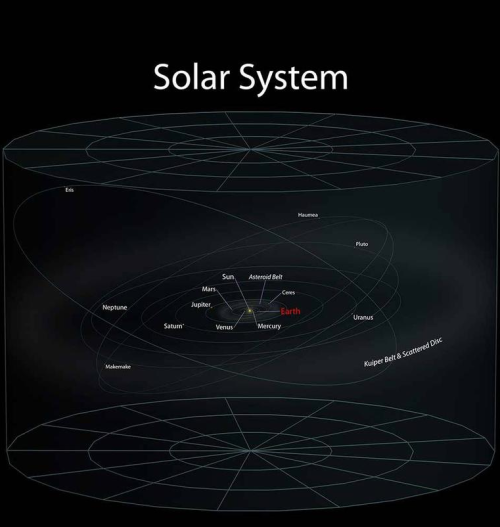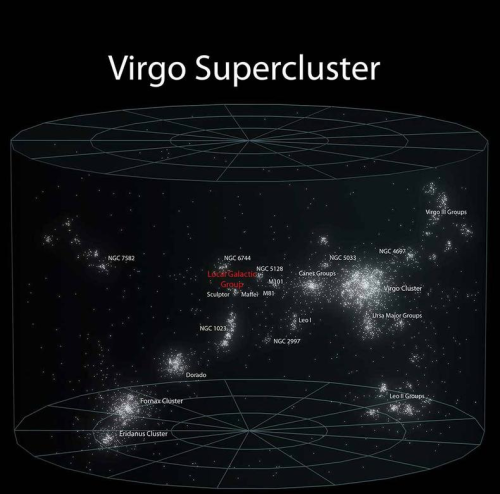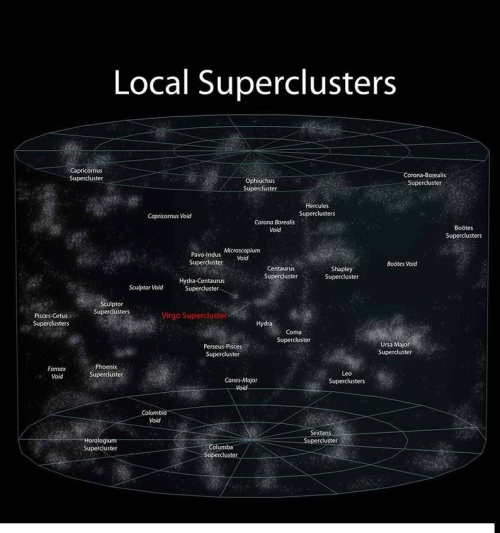
972 posts
If Owning A Gun And Knowing How To Use It Worked, The Military Would Be The Safest Place For A Woman.
If owning a gun and knowing how to use it worked, the military would be the safest place for a woman. It’s not. If women covering up their bodies worked, Afghanistan would have a lower rate of sexual assault than Polynesia. It doesn’t. If not drinking alcohol worked, children would not be raped. They are. If your advice to a woman to avoid rape is to be the most modestly dressed, soberest and first to go home, you may as well add “so the rapist will choose someone else”. If your response to hearing a woman has been raped is “she didn’t have to go to that bar/nightclub/party” you are saying that you want bars, nightclubs and parties to have no women in them. Unless you want the women to show up, but wear kaftans and drink orange juice. Good luck selling either of those options to your friends. Or you could just be honest and say that you don’t want less rape, you want (even) less prosecution of rapists.
A Short Post on Rape Prevention (via brute-reason)
-
 pallid-etoiles liked this · 10 months ago
pallid-etoiles liked this · 10 months ago -
 xfairydrawing liked this · 1 year ago
xfairydrawing liked this · 1 year ago -
 tributary liked this · 1 year ago
tributary liked this · 1 year ago -
 claryamidala reblogged this · 1 year ago
claryamidala reblogged this · 1 year ago -
 claryamidala liked this · 1 year ago
claryamidala liked this · 1 year ago -
 notheretoperch liked this · 1 year ago
notheretoperch liked this · 1 year ago -
 feuilletoniste reblogged this · 1 year ago
feuilletoniste reblogged this · 1 year ago -
 aroyalpaininthecass reblogged this · 1 year ago
aroyalpaininthecass reblogged this · 1 year ago -
 alistairian reblogged this · 1 year ago
alistairian reblogged this · 1 year ago -
 psycrowsis reblogged this · 1 year ago
psycrowsis reblogged this · 1 year ago -
 aroyalpaininthecass reblogged this · 1 year ago
aroyalpaininthecass reblogged this · 1 year ago -
 forgetful-amoeba reblogged this · 1 year ago
forgetful-amoeba reblogged this · 1 year ago -
 lifeisdebubbles reblogged this · 1 year ago
lifeisdebubbles reblogged this · 1 year ago -
 air-crash-investigation-of-me reblogged this · 1 year ago
air-crash-investigation-of-me reblogged this · 1 year ago -
 lifeisdebubbles liked this · 1 year ago
lifeisdebubbles liked this · 1 year ago -
 hqualcosa liked this · 1 year ago
hqualcosa liked this · 1 year ago -
 lordnarvi liked this · 1 year ago
lordnarvi liked this · 1 year ago -
 deceasedcharmofthebourgeoisie reblogged this · 1 year ago
deceasedcharmofthebourgeoisie reblogged this · 1 year ago -
 aethelflaed93 liked this · 1 year ago
aethelflaed93 liked this · 1 year ago -
 alulasartgallery liked this · 1 year ago
alulasartgallery liked this · 1 year ago -
 solafide reblogged this · 1 year ago
solafide reblogged this · 1 year ago -
 gaygnomegirl liked this · 1 year ago
gaygnomegirl liked this · 1 year ago -
 frankenshane liked this · 1 year ago
frankenshane liked this · 1 year ago -
 mary-louise4760 liked this · 1 year ago
mary-louise4760 liked this · 1 year ago -
 valeriansprigs liked this · 1 year ago
valeriansprigs liked this · 1 year ago -
 areusittingcomfortably liked this · 1 year ago
areusittingcomfortably liked this · 1 year ago -
 le-fils-de-lhomme liked this · 1 year ago
le-fils-de-lhomme liked this · 1 year ago -
 tauntedoctopuses liked this · 1 year ago
tauntedoctopuses liked this · 1 year ago -
 brigdh liked this · 1 year ago
brigdh liked this · 1 year ago -
 thnks-fr-th-fndms liked this · 1 year ago
thnks-fr-th-fndms liked this · 1 year ago -
 iamanathemadevice reblogged this · 1 year ago
iamanathemadevice reblogged this · 1 year ago -
 iamanathemadevice liked this · 1 year ago
iamanathemadevice liked this · 1 year ago -
 marsnothere liked this · 1 year ago
marsnothere liked this · 1 year ago -
 theyear1980 liked this · 1 year ago
theyear1980 liked this · 1 year ago -
 habadabadooda reblogged this · 1 year ago
habadabadooda reblogged this · 1 year ago -
 hypotheticalme reblogged this · 1 year ago
hypotheticalme reblogged this · 1 year ago -
 prinzessinpluto reblogged this · 1 year ago
prinzessinpluto reblogged this · 1 year ago -
 prinzessinpluto liked this · 1 year ago
prinzessinpluto liked this · 1 year ago -
 carryonwaywardstar liked this · 1 year ago
carryonwaywardstar liked this · 1 year ago -
 valentinsylve liked this · 1 year ago
valentinsylve liked this · 1 year ago -
 dreamingstilluniverse reblogged this · 1 year ago
dreamingstilluniverse reblogged this · 1 year ago -
 cicerfics liked this · 1 year ago
cicerfics liked this · 1 year ago -
 starlightcommunism reblogged this · 1 year ago
starlightcommunism reblogged this · 1 year ago -
 ackermess liked this · 1 year ago
ackermess liked this · 1 year ago -
 dragoon811 liked this · 1 year ago
dragoon811 liked this · 1 year ago -
 littlemissmanga reblogged this · 1 year ago
littlemissmanga reblogged this · 1 year ago -
 shinladyanarki reblogged this · 1 year ago
shinladyanarki reblogged this · 1 year ago -
 shinladyanarki liked this · 1 year ago
shinladyanarki liked this · 1 year ago
More Posts from Stoically
Followed by the slow realization that the only reason she wanted the slave you used as a translator is because she understood how fucking smart said slave is.







Hunh, Tumblr really does this.
You can kill the spell of identification just as easily as you can create it—if you lose the reader’s sympathy for the character. You can lose reader sympathy by having your character commit acts of cruelty to another character with whom the readers identify more strongly or for whom they have strong sympathy. You can lose reader sympathy by having the character make dumb choices—acting at less than maximum capacity. The idiot in the horror story who responds to creepy noises by going into the attic armed only with a candle is an example. You can lose reader sympathy when a character seems too ordinary, is stereotyped, or doesn’t struggle hard enough. The reader wants to cheer a fighter, not witness a milquetoast wallowing in, say, self-pity.
James N. Frey, author of How to write a damn good novel (via amandaonwriting)
Yup! Rule #1 about main characters: Whether they’re “good” or “bad”, the reader should root for him/her, and find him/her “a sympathetic character” (this isn’t the usual definition of sympathy as “feeling bad for someone”, and it doesn’t mean that the character is sympathetic but rather that the reader is sympathetic to the character—it comes from the German word sympatisch, which means likeable/appealing).
(via yeahwriters)
That so doesn't explain Bella from Twilight...
Totally thought for a moment that it meant the stars were just little godly sperms.









Seems legit…

Writers can use these 12 Archetypes to create characters
The 12 Common Archetypes by Carl Golden
The twelve archetypes are divided into ego types, self types, and soul types.
1) The Four Ego Types 1. The Innocent Motto: Free to be you and me Core desire: to get to paradise Goal: to be happy Greatest fear: to be punished for doing something bad or wrong Strategy: to do things right Weakness: boring for all their naive innocence Talent: faith and optimism The Innocent is also known as: Utopian, traditionalist, naive, mystic, saint, romantic, dreamer. 2. The Orphan/Regular Guy or Gal Motto: All men and women are created equal Core Desire: connecting with others Goal: to belong Greatest fear: to be left out or to stand out from the crowd Strategy: develop ordinary solid virtues, be down to earth, the common touch Weakness: losing one’s own self in an effort to blend in or for the sake of superficial relationships Talent: realism, empathy, lack of pretence The Regular Person is also known as: The good old boy, everyman, the person next door, the realist, the working stiff, the solid citizen, the good neighbour, the silent majority. 3. The Hero Motto: Where there’s a will, there’s a way Core desire: to prove one’s worth through courageous acts Goal: expert mastery in a way that improves the world Greatest fear: weakness, vulnerability, being a “chicken” Strategy: to be as strong and competent as possible Weakness: arrogance, always needing another battle to fight Talent: competence and courage The Hero is also known as: The warrior, crusader, rescuer, superhero, the soldier, dragon slayer, the winner and the team player. 4. The Caregiver Motto: Love your neighbour as yourself Core desire: to protect and care for others Goal: to help others Greatest fear: selfishness and ingratitude Strategy: doing things for others Weakness: martyrdom and being exploited Talent: compassion, generosity The Caregiver is also known as: The saint, altruist, parent, helper, supporter. 2) The Four Soul Types 5. The Explorer Motto: Don’t fence me in Core desire: the freedom to find out who you are through exploring the world Goal: to experience a better, more authentic, more fulfilling life Biggest fear: getting trapped, conformity, and inner emptiness Strategy: journey, seeking out and experiencing new things, escape from boredom Weakness: aimless wandering, becoming a misfit Talent: autonomy, ambition, being true to one’s soul The explorer is also known as: The seeker, iconoclast, wanderer, individualist, pilgrim. 6. The Rebel Motto: Rules are made to be broken Core desire: revenge or revolution Goal: to overturn what isn’t working Greatest fear: to be powerless or ineffectual Strategy: disrupt, destroy, or shock Weakness: crossing over to the dark side, crime Talent: outrageousness, radical freedom The Outlaw is also known as: The rebel, revolutionary, wild man, the misfit, or iconoclast. 7. The Lover Motto: You’re the only one Core desire: intimacy and experience Goal: being in a relationship with the people, work and surroundings they love Greatest fear: being alone, a wallflower, unwanted, unloved Strategy: to become more and more physically and emotionally attractive Weakness: outward-directed desire to please others at risk of losing own identity Talent: passion, gratitude, appreciation, and commitment The Lover is also known as: The partner, friend, intimate, enthusiast, sensualist, spouse, team-builder. 8. The Creator Motto: If you can imagine it, it can be done Core desire: to create things of enduring value Goal: to realize a vision Greatest fear: mediocre vision or execution Strategy: develop artistic control and skill Task: to create culture, express own vision Weakness: perfectionism, bad solutions Talent: creativity and imagination The Creator is also known as: The artist, inventor, innovator, musician, writer or dreamer. 3) The Four Self Types 9. The Jester Motto: You only live once Core desire: to live in the moment with full enjoyment Goal: to have a great time and lighten up the world Greatest fear: being bored or boring others Strategy: play, make jokes, be funny Weakness: frivolity, wasting time Talent: joy The Jester is also known as: The fool, trickster, joker, practical joker or comedian. 10. The Sage Motto: The truth will set you free Core desire: to find the truth. Goal: to use intelligence and analysis to understand the world. Biggest fear: being duped, misled—or ignorance. Strategy: seeking out information and knowledge; self-reflection and understanding thought processes. Weakness: can study details forever and never act. Talent: wisdom, intelligence. The Sage is also known as: The expert, scholar, detective, advisor, thinker, philosopher, academic, researcher, thinker, planner, professional, mentor, teacher, contemplative. 11. The Magician Motto: I make things happen. Core desire: understanding the fundamental laws of the universe Goal: to make dreams come true Greatest fear: unintended negative consequences Strategy: develop a vision and live by it Weakness: becoming manipulative Talent: finding win-win solutions The Magician is also known as: The visionary, catalyst, inventor, charismatic leader, shaman, healer, medicine man. 12. The Ruler Motto: Power isn’t everything, it’s the only thing. Core desire: control Goal: create a prosperous, successful family or community Strategy: exercise power Greatest fear: chaos, being overthrown Weakness: being authoritarian, unable to delegate Talent: responsibility, leadership The Ruler is also known as: The boss, leader, aristocrat, king, queen, politician, role model, manager or administrator.
Note: There are four cardinal orientations: freedom, social, ego, order. The types have a place on these orientations.
Article via soulcraft.co